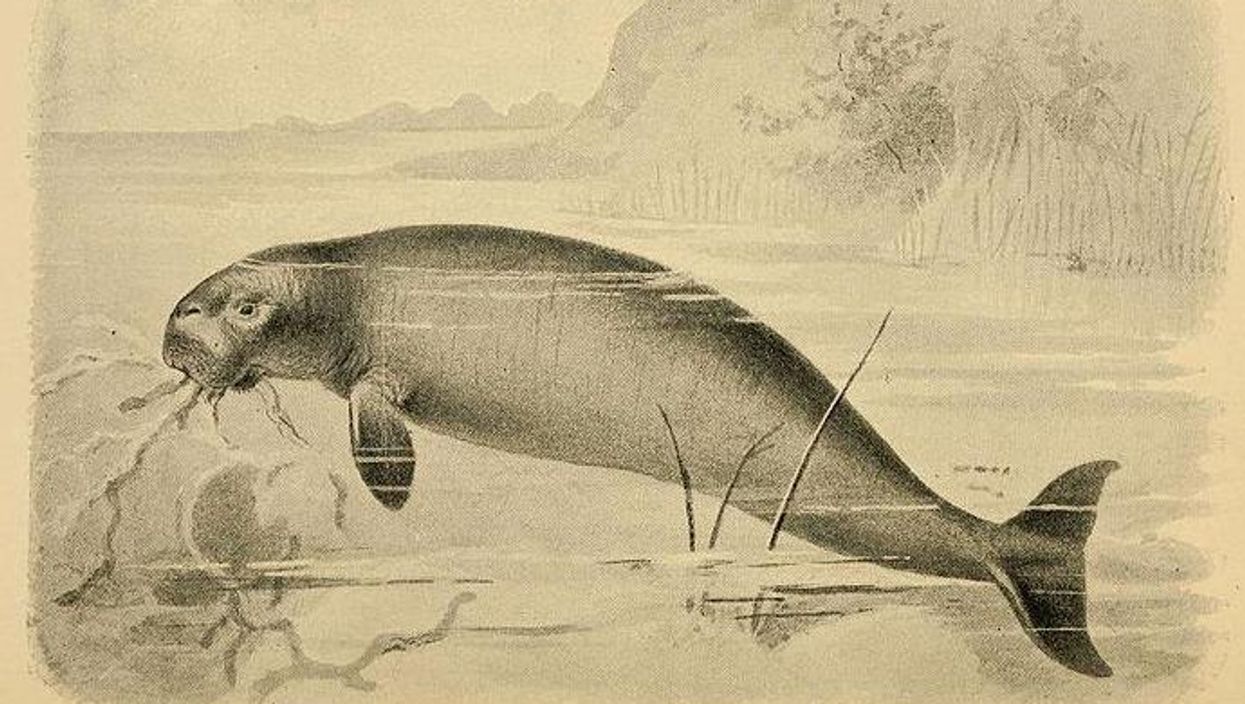News
Joe Vesey-Byrne
Dec 06, 2017

Picture: Biodiversity Library, Extinct monsters 1896
Remains of a massive extinct species, the Steller's sea cow, have been found off the eastern coast of Russia.
The find comes days after the remains of another sea cow was reportedly found in California.
The Steller's sea cow was discovered in 1741 by Captain Vitus Bering, after whom the strait and sea between Russia and Alaska are named.
The creature was studied by the German zoologist George Steller who reported that the blubber tasted like almond oil. This could explain why the beast, with its tasty, flavoured, rubbery hide, became extinct just 27 years after its discovery.
Steller's sea cow became extinct in 1768, but its relation the North American manatee lives on.
This 'cow of the sea' is named for both its mass (weighing almost 11,000 lbs by some counts) and its constant grazing.
New Discovery in Kamchatsky
According to a release by the Russian Ministry of Natural Resources, the remains of such a beast were recently found near to the waters of the Commander Islands, located in the Bering Sea, and off the coast of Russia.
Several ribs could be seen from the coastal cliff, the skeleton was hidden beneath a layer of pebbles and sand at a depth of 70 cm.
The skeleton, said to measure 6 metres in total, was reportedly uncovered on the Komandorsky Nature Reserve.
The remains were missing the sea cow's skull and some vertebrae, so the actual length of the skeleton was 5.2 metres.
According to Motherboardit was spotted by researcher and expert in northern fur seals, Marina Shitova.
Excavating took four hours and eight people were involved in the uncovering.
The find comes 30 years on from another sea cow skeleton discovery, which the reserve stated measured 3 metres and was found on Bering Island.
The majority of the finds occurred in the nineteenth century, but remnants of sea cows continue to crop up in the Komandorsky reserve.
HT Motherboard
More: These vintage tourism posters hide a disturbing secret
Top 100
The Conversation (0)













